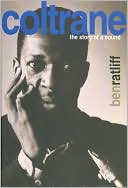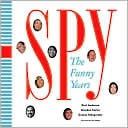 While your first thought when you hear the phrase "two great tastes that taste great together" may be the combination of peanut butter and chocolate, at the library we have the literary equivalent of a Reese's Peanut Butter Cup - NextReads and Author of the Month.
While your first thought when you hear the phrase "two great tastes that taste great together" may be the combination of peanut butter and chocolate, at the library we have the literary equivalent of a Reese's Peanut Butter Cup - NextReads and Author of the Month.First up, Next Reads. How would you like to have us e-mail you some monthly suggestions of new and classic books based on your reading preferences? That sounds a bit boring, but let me re-phrase: You pick the genre, we'll deliver you the choices. For example, ever since you read David McCullough's Truman biography, you've realized that biographies are really, really interesting. You can pick "History and Current Events" and "Biography and Memoir", give us your favorite email address, and BINGO, you'll get some super-spiffy-keen non-boring book suggestions (with pictures if you read the email in HTML). Once you get the list of books, you have links to the library's catalog so you can reserve them immediately. Cool, huh?
Head to the NextReads homepage to sign up. Go ahead, we'll wait for you.
 mn. But you say to yourself, "The reference homepage doesn't have a right column". Well, now it does. And it's sole occupant is the brand new "Author of the Month" feature.
mn. But you say to yourself, "The reference homepage doesn't have a right column". Well, now it does. And it's sole occupant is the brand new "Author of the Month" feature.Every month a trained Rochester librarian will hand-select a worthy author and insert he or she into the aforementioned right column for your perusing pleasure. This month features renowned religious scholar Karen Armstrong. To sweeten the deal, we'll even make the pictures in the column linkable to our catalog so you can go right to that author's books in our collection. All for the same price as we charge for our other library services (free).
Let us know what you think about our new web features!


 Representatives from Reference, Administration, Circulation, Reader Services, Technical Services and Children's all took in various sessions to learn how to be better public libraries. And collected a veritable smorgasbord of bags, books, pens and other giveaways for prizes, thank you gifts and whatnot.
Representatives from Reference, Administration, Circulation, Reader Services, Technical Services and Children's all took in various sessions to learn how to be better public libraries. And collected a veritable smorgasbord of bags, books, pens and other giveaways for prizes, thank you gifts and whatnot.























